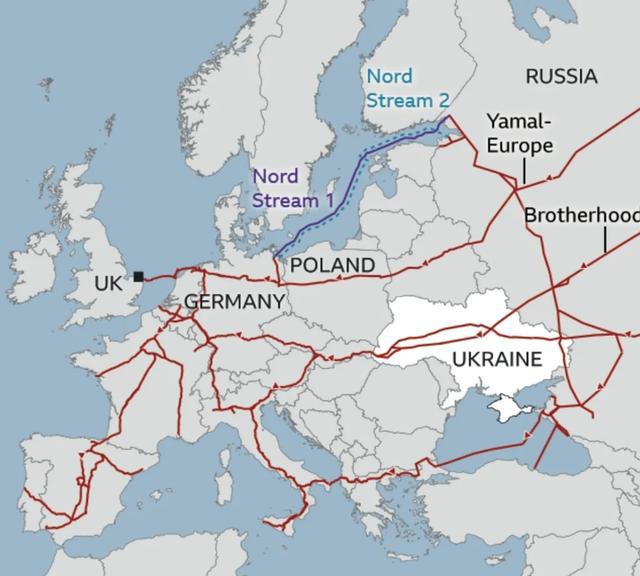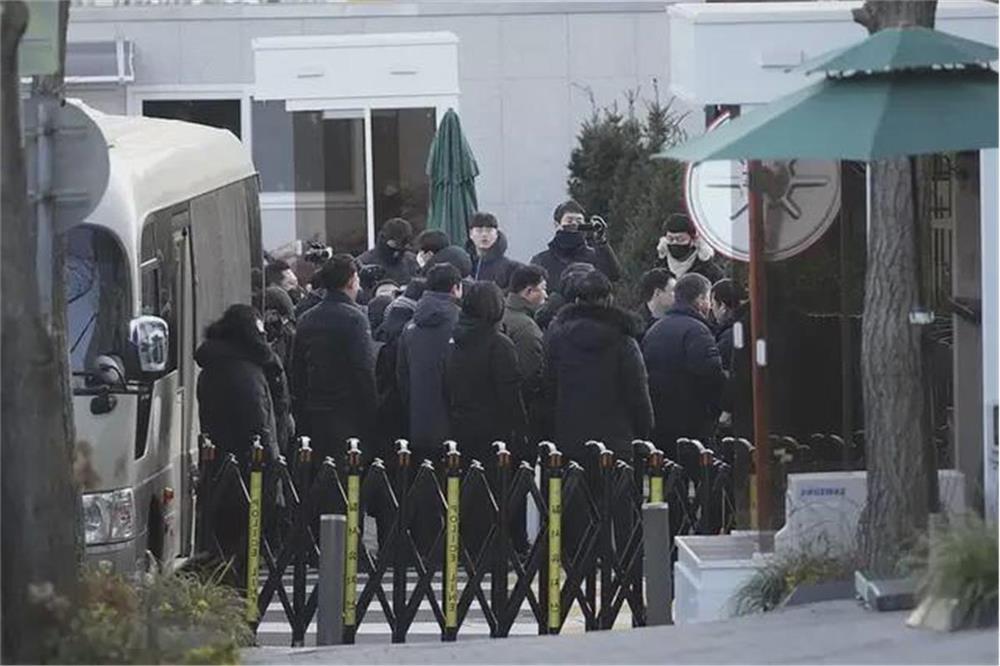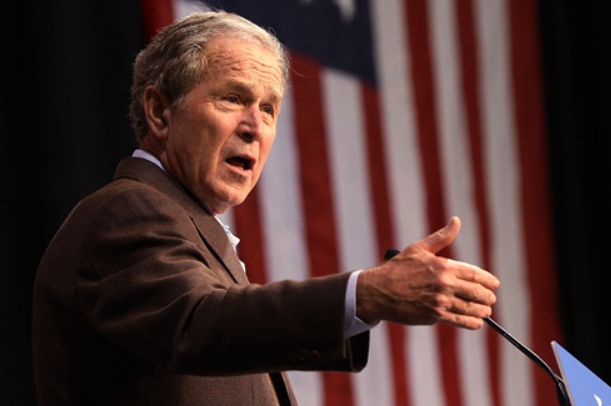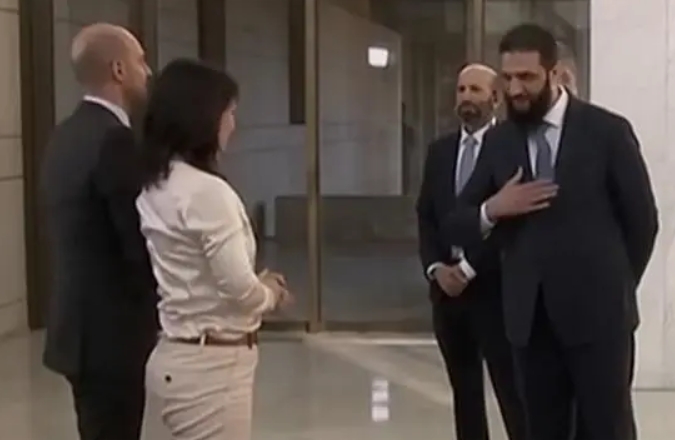Slovakia threatens to retaliate against Ukraine: Restore Gazprom transit or pay up

Slovakia's prime minister said Thursday that his ruling coalition would discuss retaliation against Ukraine after it ended the transit of Russian gas across its territory to the country.
In a video posted on Facebook, Prime Minister Robert Fico said his Direction party would consider cutting off electricity supplies to Ukraine, reducing aid to Ukrainian refugees, and demanding that Ukraine either resume Russian gas transit or compensate Slovakia for the loss of Russian gas.
Russia officially closed the Ukrainian pipeline used to send natural gas to Europe at the start of this year, when a transit contract with Ukraine expired. The move marked the end of decades of Russian dominance in the European energy market. It will also deal a major blow to several European countries, including Slovakia, Italy, and Austria.
Although Slovakia has other gas suppliers, Fico said that it will lose its own transit revenues and also have to pay transit fees to other countries to import non-Russian gas. He also said that Ukraine's decision would contribute to a further increase in the price of gas and electricity in Europe.
Fico said that a Slovak delegation would discuss the situation in Brussels next Tuesday, before his ruling coalition discusses retaliation for the "sabotage" of Ukrainian President Volodymyr Zelenskyy.
"I announce (my Direction-Social Democrats) ready to agree in the coalition to debate and agree on stopping (electricity) supplies to Ukraine and to significantly reduce support to Ukrainian citizens in Slovakia," Fico said.
He also said that Slovakia's demand would be "to resume Gazprom transit through Ukraine or compensate Slovakia for the damage of almost 500 million euros."
Fico has already halted the flow of military aid to Ukraine and wants to create more favorable conditions for his country's relations with Russia.
Last week, Zelenskyy accused Fico of opening a second energy front against Ukraine.
"Russia gave the order. The Slovak government, serving the occupiers, sacrificed Slovakia for it. The Slovak people are not needed," Zelenskyy said.
Eurostream, Slovakia's gas transmission system operator, which owns the Russian-Ukrainian gas pipeline, published its latest financial data on its website. For the six months to January 31 last year, the company's revenue was 158 million euros, with a net profit of 25 million euros.
The state-owned Slovak gas importer SPP said on Wednesday that, if all Russian gas is replaced, the company will incur additional costs of around 90 million euros, mainly due to transit fees. SPP covers about two-thirds of Slovakia's gas needs.
Eastern Slovakia borders Ukraine, which has suffered rolling power cuts due to Russian bombardment. According to data from Slovakia's power grid operator, the country exported 2.4 gigawatt hours of electricity to Ukraine in the first 11 months of 2024.
Zelenskyy: Cutting off Russian gas to Europe is one of Moscow's biggest failures
Europe has formally ended the "era of Russian gas" with the stroke of New Year's midnight. The gas transit agreement between Russia and Ukraine failed to be renewed and officially expired on December 31, 2024.
In a statement on New Year's Day, Russia's state-owned gas company Gazprom said that it had stopped transit shipments of its supplies to Europe through Ukraine because the transit agreement with the country had expired. The company said that it was "technically and legally impossible" to continue to deliver gas to Europe via Ukraine as Ukrainian authorities "repeatedly refused to extend the agreement."
For decades, Russia sent gas from its Siberian fields through a pipeline crossing Ukraine to Slovakia, the Czech Republic, Hungary, and Austria. These countries, in turn, received much of their gas supplies from Gazprom.
According to data from Eurostat, 69% of gas imported to Slovakia and 60% of gas imported to Austria came from Russia in 2023. So, the end of the "era of Russian gas" was a source of anxiety in these countries. Fico had previously said that the economic consequences of Gazprom's decision would be "much greater in the EU than in Russia."
Russian President Vladimir Putin previously said that Ukraine rejected the extension of the transit agreements to send gas to Slovakia, the Czech Republic, and Austria. He said that Europe was being punished and that gas prices there would go up because of this decision.
Ukraine, however, was clear about its position. "As long as the war continues, and as long as there is no guarantee that the Kremlin is not profiting from this transit, no gas will be allowed through our borders," Ukraine's energy minister, German Galushchenko, said before the agreement expired.
Ukraine claimed that the decision to stop Russian gas transit through its territory was made by Europe, not by the country.
"We have stopped the transportation of Russian gas. This is a historical event. Russia is losing the market, and it will suffer economically," Galushchenko said in a statement.
Not so bad?
But the cutoff probably should not affect the price paid by EU consumers, unlike in 2022, when the loss of Russian supplies sent prices soaring to record levels, fueling the worst cost-of-living crisis in a generation and denting EU competitiveness.
That's because, last November, Slovakia became the only EU country receiving gas via Ukraine, after Russia cut supplies to Austria. Slovakia also makes money from transit fees for gas sent to Austria, Hungary, and Italy.
The latest information is that Austria and Slovakia have already arranged alternative supplies, while Hungary will continue to receive Russian gas via the TurkStream pipeline under the Black Sea.
Still, it's likely there will be some effects. For example, the breakaway Transdniestria region of Moldova, which borders Ukraine, cut off heating and hot water to residents earlier this week. The local energy company, Tirasteploenergo, urged people to "wear warm clothes and underwear" and to hang blankets or thick curtains on windows and French doors leading to balconies. The company also recommended using electric heaters.
Ukraine's Zelenskyy said that the end of Ukrainian transit for Russian gas bound for Europe was one of Moscow's biggest failures, and urged the United States to increase its gas supplies to the bloc.
"The more products from the real partner of Europe (on the market), the faster we will overcome the last negative consequences of European energy dependence on Russia," he added.
Zelenskyy also said that Europe's "joint task" now was to support ex-Soviet Moldova, which has been facing an energy crisis following Russia's invasion of Ukraine, during its "energy transition period."
For its part, the European Commission said that the EU was prepared for the cutoff.
"A European gas infrastructure is flexible enough to deliver non-Russian gas. Since 2022, significant additional LNG import capacity has been added," a spokesperson for the Commission said.
 Famous Persons
Famous Persons English
English
 Jerry
Jerry Facebook
Facebook Twitter
Twitter Pinterest
Pinterest Linkin
Linkin Email
Email Copy Link
Copy Link










